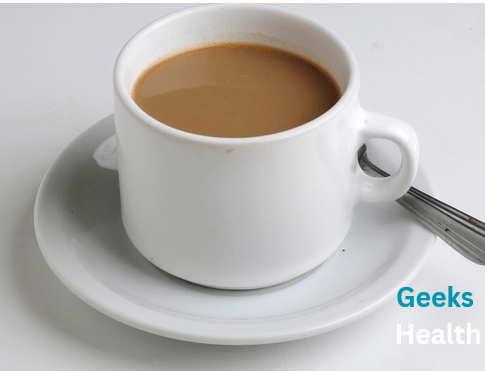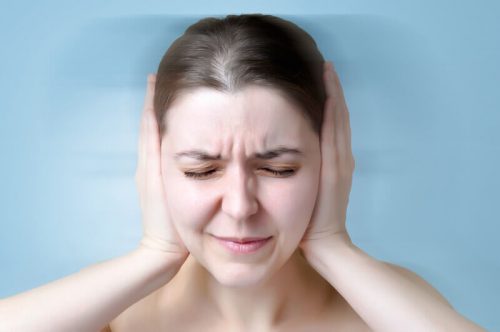Does Coffee With Milk Make You Gain Weight?

[ad_1]
Over the course of four years, the researchers discovered that increasing consumption of unsweetened, decaffeinated, or caffeine-free coffee by one cup per day was linked to a weight gain that was 0.12 kg less than anticipated.

The addition of creamer (milk) or a non-dairy substitute had no discernible impact on the weight shift. However, over the course of four years, putting one teaspoon of sugar into coffee was linked to a 0.09 kg increase in weight that was not anticipated.
Is Coffee With Milk Bad for Weight Loss?
Black coffee is the better option for those trying to lose weight because it has fewer calories than coffee with milk. But not everyone is interested in losing weight, and for those who are, coffee and milk can offer a variety of options, such as skim milk or lower-fat coffee creamers.
Soy milk, almond milk, and skimmed milk are examples of whole milk substitutes that people can use in their coffee to enhance the flavor without adding additional fat.
Does Drinking Coffee Increase Weight?
Drinking coffee without added high-calorie ingredients usually doesn’t cause weight gain. Actually, drinking black coffee by itself is a low-calorie option that has nutritious ingredients that could help you maintain a healthy weight, especially if you drink it right before going out. There are limits to coffee drinking, though.
If your favorite caffeinated beverages have a lot of added sugar and high-fat creamer, you can gain weight if you eat more calories than you burn off. In order to better control your weight, it’s also crucial to take into account the time of day you drink coffee.
Therefore, to cut down on calories, try drinking your daily joe plain, adding as little sugar and cream as possible, or adding a few spices. In this manner, coffee enjoyment is not compromised.
Related: Does Coffee Burn Fat?
What Happens if You Drink Milk Coffee Every Day?
According to recent research, coffee mixed with milk could enhance insulin sensitivity, boost metabolism, and reduce inflammation. This combination seems to work synergistically to improve health markers crucial for managing blood sugar levels.
The study also suggests that this mixture might help in controlling diabetes, making it a potentially beneficial addition to a diabetic’s diet. This promising finding points to the possibility that regularly consuming coffee with milk could be a simple yet effective way to help manage and potentially stabilize diabetes symptoms.
Will I Gain Weight if I Drink Milk Every Day?
Recent research has found that including a balanced amount of milk, yogurt, and cheese in your diet does not lead to weight gain. This might seem surprising given the calorie content of dairy products, but the variety of nutrients they contain plays a crucial role.
These nutrients interact in complex ways that can actually enhance the overall benefits of a well-rounded diet.
The study suggests that dairy products’ benefits are amplified when they are part of a nutritious eating plan. This is because the proteins, vitamins, and minerals in dairy can help balance other elements of your diet, contributing to better health without adding extra pounds. Essentially, when consumed as part of a healthy diet, dairy products can be part of your lifestyle without the fear of weight gain.
Related: Can Coffee And Lemon Help You Lose Weight
How Can I Drink Coffee Without Gaining Weight?
If your goal is to reduce weight, you can definitely drink coffee. Nonetheless, it’s critical to minimize high-fat creamers, syrups, and added sugar to maintain a low calorie count. Alternatively, you can flavor your preferred caffeinated beverages with low-fat creamers, spices, and tiny amounts of organic sweeteners.
How Many Calories Are in Milk Coffee?
A cup of coffee with a little bit of semi-skimmed milk has about 30 calories. This count includes the calories from the semi-skimmed milk, which has about 50 calories per 100 milliliters, and the coffee, which only has about 2 calories per 100 milliliters. The milk adds most of the calories, while the coffee contributes very few.
If you decide to add sugar to your coffee, the total number of calories will go up. The increase in calories depends on how much sugar you put in. A teaspoon of sugar typically adds around 16 calories. So, if you like your coffee sweet, just remember that each spoonful of sugar bumps up the calorie count.
What is the Best Time to Drink Coffee for Weight Loss?
Drinking coffee a few hours before you eat might actually help you eat less during your next meal. Studies have shown that people tend to consume fewer calories when they have coffee up to four hours before eating.
Coffee contains a special component called chlorogenic acid. This ingredient not only helps burn fat but might also slow down how quickly your body takes in carbohydrates, aiding in more effective calorie management.
Which Coffee is Best, Black or With Milk?
Black coffee is obviously better for you than milk coffee, even with the same amount of caffeine. It can increase brain activity, aid with memory, and perhaps provide long-term protection against cognitive deterioration.
It’s been shown that drinking a cup of hot black tea every day helps prevent memory problems as you age. Additionally, compared to consuming a dairy version, its higher caffeine content will guarantee that you stay awake during the day.
Drinking black coffee may improve the health of your heart. Similar to how physical activity does, the stimulants in a cup of coffee raise your heartbeat’s strength as well as its rate and pressure.
Stated differently, consuming at least one cup of coffee a day may lower the risk of stroke or other cardiovascular problems. Read up on the advantages of black coffee to find out more.
Compared to black coffee, milk coffee provides a number of benefits. Because of its lower acidity than its counterpart, it can help avoid heartburn and produce more alkaline urine as opposed to acidic.
The milk is added to dilute the caffeine content and create a smoother sipping experience, which accounts for the mildness. You may also want to read more on the health advantages of milk coffee!
Why Do I Feel Hungry After Coffee?
Caffeine may primarily reduce one’s desire to eat, but research indicates that it may potentially gradually increase one’s appetite. Although the precise processes underlying this reaction are still unclear, caffeine is thought to affect the hormones ghrelin and leptin, which control appetite and fullness.
Can I Drink Coffee During Weight Loss?
A recent study discovered a connection between drinking coffee without sugar and losing weight. Weight changes were also connected to increases in coffee intake. Still, adding a spoonful of sugar negated the effect.
According to experts, coffee may help with weight loss by increasing calories or decreasing hunger. People who drink coffee without sugar can lose weight because they consume a much lower amount of calories.
Does Milk Coffee Without Sugar Increase Weight?
According to a recent study published in The American Journal of Clinical Nutrition, adding sugar to coffee was linked to a moderate weight increase, whereas consuming coffee without sugar was connected with a slight weight loss.
The Bottom Line
Coffee without milk obviously helps you lose weight fast, and the process might get slower when you add milk. However, it is not clear that coffee with milk can cause weight gain. If you want to speed up the process of losing weight, you should try black coffee without adding sugar or milk.
Medical Discalimer:
The information provided here On Geeks Health website is for general informational purposes only. It is not intended to be a substitute for professional medical advice, diagnosis, or treatment. Always seek the advice of your physician or other qualified health provider with any questions you may have regarding a medical condition. If you have or suspect a medical problem, promptly contact your healthcare provider. Reliance on any information in this response is solely at your own risk.
[ad_2]
Source link





